Search
Remove Ads
Advertisement
Search Results
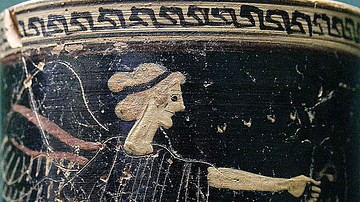
Definition
Iris
Iris is the goddess of rainbows and an important messenger between the gods and humans in Greek mythology. She was most commonly portrayed as the personal messenger of Hera. Iris was the daughter of the Titans Thaumas and Electra and the...
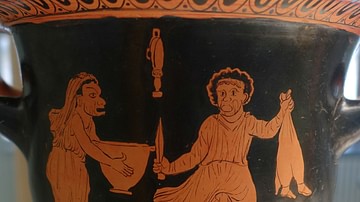
Definition
Thesmophoriazusae
The Thesmophoriazusae (also called The Poet & the Women or Women at the Thesmophoria) is a two-act comedy play written in 411 BCE by the great Greek comic playwright, Aristophanes. The play's principal focus is on the Greek tragedian Euripides...

Definition
Euripides
Euripides (c. 484-407 BCE) was one of the greatest authors of Greek tragedy. In 5th century BCE Athens his classic works such as Medeia cemented his reputation for clever dialogues, fine choral lyrics and a gritty realism in both his text...
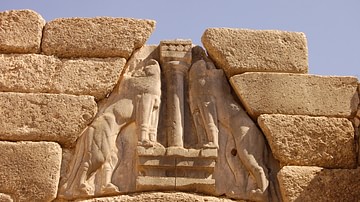
Definition
Mycenae
Mycenae was a fortified late Bronze Age city located between two hills on the Argolid plain of the Peloponnese, Greece. The acropolis today dates from between the 14th and 13th century BCE when the Mycenaean civilization was at its peak of...
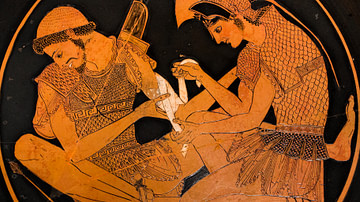
Definition
Patroclus
Patroclus is a figure from Greek mythology who fought in the Trojan War and was most famous for his close friendship with the Greek hero, Achilles. He followed Achilles to Troy and would ultimately die because of him and his actions. Patroclus'...

Definition
Sarpedon
Sarpedon is a figure from ancient Greek mythology, a Lycian prince who was one of the principal heroes during the Trojan War and fought on the side of Troy. According to Homer's Iliad, he was the son of Zeus by Laodameia and the cousin of...
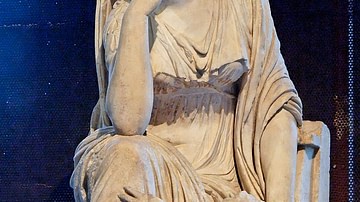
Definition
Thetis
Thetis is one of 50 Nereids (sea nymphs) and a goddess of the sea in Greek mythology. Thetis is best known for being the mother of the Greek hero Achilles, however, her role goes beyond that; she appears in various stories and interacts with...
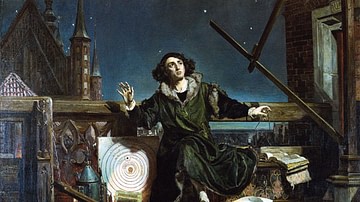
Definition
Nicolaus Copernicus
Nicolaus Copernicus (1473-1543 CE) was a Polish astronomer who famously proposed that the Earth and other planets revolved around the Sun in a heliocentric system and not, as then widely thought, in a geocentric system where the Earth is...
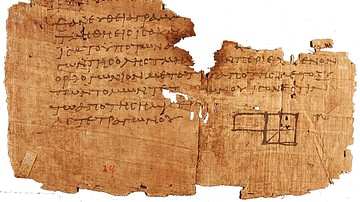
Definition
Ancient Greek Science
Ancient Greek science is a modern term for the application of systematic inquiry into the individual, the world, and the universe, which began in Ionia in the 6th century BCE with Thales of Miletus (l. c. 585 BCE) and continued through the...
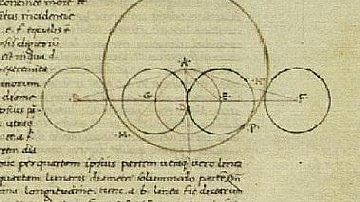
Definition
Greek Astronomy
Ancient Greek astronomy was the study of the universe to understand how it functioned and why apart from the established theistic model that claimed all things were ordered and maintained by the gods. Ancient Greek astronomers relied on observation...